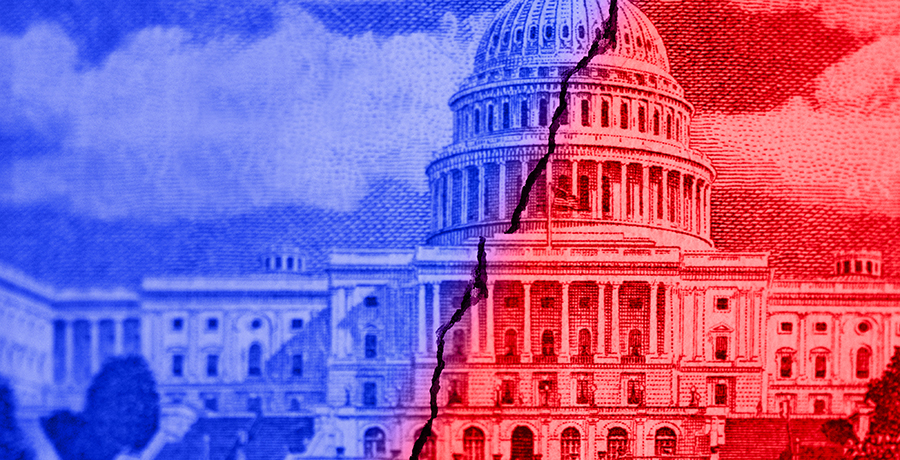“We’re in uncharted territory”: HIV funding & the risk of a government shutdown

As a queer, Black individual who takes PrEP, the possibility of a government shutdown raises concerns that reach far beyond the typical political discussions. The potential consequences of such an event on access to HIV and AIDS healthcare for those living with the virus, and taking medication to prevent transmission of the virus, are deeply troubling, particularly for communities like mine.
PrEP, a medication regimen that can reduce the risk of HIV infection by up to 99% when taken as prescribed, has been a game-changer in the fight against HIV and AIDS. It offers substantive progress and hope in the midst of a global health crisis that disproportionately affects queer, Latino, and Black communities. However, PrEP’s accessibility relies heavily on stable healthcare systems, funding, and infrastructure, all of which may be disrupted by government shutdowns.
Ordinarily, discussion of a government shutdown doesn’t spell panic and concern for our communities. That’s because state and local governments often can anticipate a looming government shutdown and implement practices to manage their cash flow with their most critical services. They’ve done this in the past to provide stability to their clients, and can repeat these procedures today.
In fact, 14 shutdowns have occurred since 1980. However, what’s different from the past is that we don’t really know how long a government shutdown will last, especially with an ultra-conservative, outsized right-wing voice in the GOP that remains dead-set on making a point at the expense of the lives of the people they serve. Nor do we know what deal must be reached to end or prevent a government shutdown. Surely, however, the longer a government shutdown lasts, the less certain we can be about an ability for state and local governments to continue serving their communities.
“We’re in uncharted territory,” said SFAF’s Senior Strategist and Advisor, Ernest Hopkins.
One piece of good news, Hopkins said, is that, “organizations and agencies are aware a shutdown is imminent, so they can begin planning cash flows now.”
To ensure financial stability, continue providing essential care, and mitigate any long-term impact on their ability to serve the community, healthcare providers may consider taking action such as:
- Revising budgets to reduce discretionary spending and reduce immediate costs. This could involve postponing non-essential expenses, such as facility upgrades or equipment purchases, streamlining operations to support critical priorities, and focusing on maintaining core healthcare services.
- Assessing their coverage for business interruption or liability related to a government shutdown, ensuring they are adequately protected.
- Seeking additional sources of funding, such as short-term loans or lines of credit to bridge potential gaps in cash flow. This can help ensure they can continue to pay employees and cover essential expenses.
While taking these mitigating measures, providers should maintain transparent communication with patients. Providers may inform patients about potential service disruptions and work to minimize any inconvenience. They might also encourage patients to keep up with health insurance payments or co-pays if possible.
But the question remains — for how long would a government shutdown last if it were to happen? And what would it take to prevent or end a government shutdown? A massive chasm lives between the two sides that must come together to identify priorities, negotiate, and propose an agreeable solution, however, one GOP budget proposal suggests slashing HIV and AIDS services funding.
First, this controversial GOP proposal calls for the complete elimination of $220 million in funding for the CDC’s “Ending the HIV Epidemics” program. Then, the overall budget for the CDC National Center on HIV, Hepatitis, STDs, and Tuberculosis would shrink by $226 million. The Minority HIV/AIDS Fund is not spared either, facing a $32 million reduction in funding. Next, the bill seeks to enact sweeping cuts, reducing the total funding for the National Institutes of Health by a staggering $3.8 billion. And finally, the Ryan White Care Program, which Hopkins led campaigns to protect for his nearly 14 years at the San Francisco AIDS Foundation, would see its funding slashed by $238 million.
In sum, these measures cumulatively translate to an 18% cut in the budget of the Centers for Disease Control and a 12% reduction in funding for Health and Human Services. “It’s the funding proposal that could potentially end a government shutdown; not the actual government shutdown, that makes me most concerned,” Hopkins said.
I share in the frustration expressed by many about the political motivations behind these proposed cuts. Public health should never be a partisan issue, and these proposed reductions appear to be driven more by ideology than by a genuine concern for the well-being of the most vulnerable in our society.
I urge our Representatives and Senators to take immediate action to prevent these cuts from becoming a reality. We cannot stand idly by as our communities are targeted, and life-saving government support is cast aside. The well-being of our most vulnerable residents and the progress we’ve made in ending the HIV epidemic are at stake, and we must fight to protect them.
A government shutdown doesn’t have to roll-back some of the momentum we’ve already achieved. In the face of these challenges, it’s essential for us to come together, advocate for equitable access to healthcare, and ensure that our voices are heard. The fight against HIV/AIDS is far from over, and we must continue to work towards a future where everyone, regardless of their background, has access to the care and support they need.










